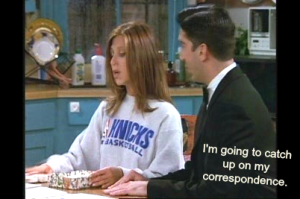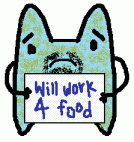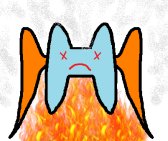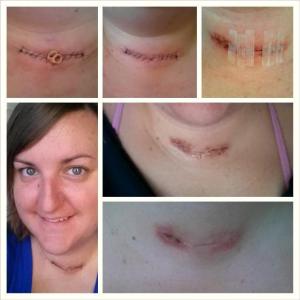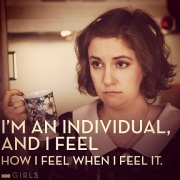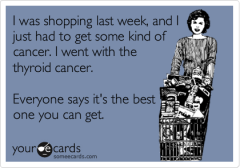Tag Archives: thyca
April 13, 2014 My unpopular opinion: young people don’t get it.
National Young Adult Cancer Awareness Week isn’t something I expected to care so much about. Sure, we all feel terrible about anyone who gets cancer, young or old – but to many of us another “awareness” week is just that: awareness that somebody else, not us, is out there suffering from something terrible that we can’t imagine. At least, that is, until it happens to you. But we’re young so we don’t “get it” — we aren’t going to get a terminal illness. We have our whole lives ahead of us! Don’t we?
I found a lump in my neck at the end of May. At one of the many appointments to try to figure out why a 27 year old would suddenly develop a tumor, I remember my mom being there and I looked over at her and said, “I know it’s something bad, Mom. My body just knows something is wrong.” This was after weeks – months, even – of fatigue, brain fog, depression, sore throats, and general malaise. One person in my life even commented, “Janna, you just aren’t the person I remember – even compared to three months ago.” My only explanation at the time was that I didn’t know what was wrong and that I obviously must be crazy. I’m 27. It can’t be cancer.
When the words were spoken to me, I was at my ENT surgeon’s office. “Do you know why you’re here?” He asked me. My reply was brief considering I was summarizing the countless appointments from the last few weeks. “Yes. There’s a mass on my thyroid and the only way to find out what it is would be to have my thyroid removed because it’s possibly cancer.”
I can still picture my surgeon’s old experienced eyes, sad as they peered into my bright, inexperienced ones. I can feel his timeworn fingers patting the summer-tanned skin of my forearm and the tone of his voice as he said six words that changed my young life. “Oh no, Janna. It IS cancer.” I’m not sure I heard anything else he said. My mind kept racing with thoughts: “I KNEW it. I’m NOT crazy. There IS an explanation for the way I’ve been feeling.” It’s weird to think that someone would be relieved to hear those words. I’m not sure if relief was what I was feeling, but rather validation – that finally there was an explanation for my downhill slide.
I don’t remember much of my conversations or actions after that except, “wait a second… I’m 27, this can’t be real.” Surgery came and went. An appointment with oncology came and went. Radioactive Iodine treatment, nearly in conjunction with my 28th birthday, came and went. Radiation came next, by far being the scariest and most isolating part of everything. One of the most nightmarish events was early on, when I spent between 30 minutes and an hour (I honestly can’t remember) trapped in my radiation mask bolted and strapped down to the table; the computer which runs the machine which distributes the cancer-killing radiation beam had frozen. “Hang on, Janna. We have to restart the computers,” one of my radiation therapists had said over the intercom. I gave a thumbs up from one of my hands strapped down to the table. I tried to open my eyes and smile in my snug radiation mask, knowing the cameras were on me so they could monitor me from outside the room. “Hang in there Janna. You’re doing great,” one of my other radiation therapists said to me.
All through it, those words from the radiation therapists, who were near my age, stayed with me: “Hang on Janna.” “Hang in there Janna, you’re doing great.” I never once thought it wasn’t worth it. I was young! I would beat this! I knew, or rather hoped, that I would come out on the other side and find meaning or a reason that I suffered through it. That I would “make my mess a message.” So I told myself to keep going. Take one step at a time. The fun, sweet, young radiation therapists kept my spirits up. They assured me that it would all be over soon and I could get back to the things a young person should be doing — building relationships, going to happy hours with their friends, taking road trips, planning their future.
But I don’t think it’ll ever truly be over. I’ve changed too much. Cancer dies, but it doesn’t go away. The surgery, iodine treatment, and radiation could’ve killed the cells but cancer isn’t gone from my mind. I spend a lot of time wondering if cancer has ruined any chance I had at a normal, stable life. I quickly shake those thoughts from my mind, but I can’t even tell you how many times a day “cancer” enters my thoughts. I’m actually not sure it ever leaves. I’ve been assured time and time again that once you’re a year, two years, four years out, that you stop thinking about it every day. It instead becomes a less frequent thought when appointments come up or you have a new pain and wonder “what if?”
For now, though, it’s still fresh. And here’s my unpopular opinion: people my age can’t comprehend what I’ve been through or why the mental anguish of cancer (even “the good kind” like I have) is extremely difficult to overcome. I’ve heard things ranging from, “you’re doing great” and “it’s awesome you can still laugh through all of this” (from my radiation therapists) to “just be happy you’re alive” and “I’ve never seen someone with such a negative attitude” (from my peers). Those remarks, among many others, helped me realize that very few could truly understand. They could care, and they could be there for me, but there were just some things I could never say out loud to somebody who hadn’t been through it. It took me a very long time to get over this (and I am still working on it).
The silver lining is that things are starting to make sense now. Young adults face entirely different challenges than children or older adults, and we must be treated with respect to those. The cancer clinic hired a full time coordinator for young adult cancer patient services. She started a support group, where I’ve met wonderful people my age — many of whom have dealt with MUCH more than I have, but say and think the same terrible, sad, yet sometimes alarmingly profound things that I do. I was asked to be on an advisory council for the cancer center, I think in part because I am willing to say the things that nobody else will. I am willing to express the unpopular, and sometimes negative, remarks that need to be said – because I know that so many other young cancer patients like me are thinking it and need something to change.
So now I know it was worth it. The treatment, the anguish, the misery that I felt on a daily basis (physically and mentally) has a meaning. That meaning is why National Young Adult Cancer Week is so important to me. Because there are, at a minimum, 70,000 other people my age being diagnosed with cancer and our survival rates aren’t improving. Many of us lose the opportunity to have children or a stable financial situation because of our diagnosis. We are often diagnosed in advanced stages, resulting in more severe treatment and side effects – and a higher prognosis of dying (something that NOBODY wants to talk about). Our oncologists, surgeons, and primary care doctors don’t know how to treat us because our physiology is unique, or “they’ve never seen someone so young with this type of cancer” (that’s a direct quote from one of my doctors).
Young Adult Cancer Awareness matters. Through all I’ve been through, I know now there was a meaning: to make things better for anyone who suffers through this. You aren’t alone and things are changing. This is my vow to you, fellow YA cancer sufferers: I’m here for you. I’ll advocate for you. Together we can make things better.
Tags: cancer, radiation, thyca, Thyroid cancer, young adult cancer
- 2 comments
- Posted under Uncategorized
March 30, 2014 This is the disease that never ends… it goes on and on my friends.
When I was about halfway through my radiation, I came across a quote that said, “Some days, you will be amazed at your own strength.” That quote really resonated with me at the time. I got up every day, forced liquids down my throat despite the unbearable pain, drove myself to radiation though I wasn’t sure I should be driving, walked myself up the three flights of stairs to my apartment even when I had to stop every few steps to sit down, kept choking down the disgusting strawberry-flavored protein drink and forced myself to keep drinking even when I threw it up, successfully avoided getting a feeding tube put in (which I had been forewarned the last two patients in my situation had done), and completed my coursework on time (and even excelled) when I could barely keep my head up and my eyes open. So when I saw that quote, I thought, “wow – I really am strong. I can do this. I never thought I’d be strong enough to handle this, but here I am – almost done. Keep going, Janna. One step at a time. The only way out is through.”
But today, I’m dealing with that quote’s evil stepsister. The voice in my head that says, “Some days, you should be astonished at just how sick you feel.” On these days, the act of waking up hurts. The pain begins as soon as my eyes open, at times so bad that I can’t even get a deep breath. My throat, constantly irritated, is rough with phlegm that all the coughing in the world can’t dislodge. The scar tissue from surgery and radiation, which covers the entire expanse of my neck, moves stiffly and achingly as I swallow. I feel electric zaps shoot down my spine and through my arms as I bend down to put my shoes on. The fatigue might be the worst part, though. The deep, paralyzing aching across my whole body that whispers, “please don’t make us get up today, Janna. Haven’t we been through enough? We are so tired. Can’t we have just one more day to rest?”
On days like this, I don’t know what to do. I get irrationally frustrated with anyone who tells me, “you’ve had worse pain, you can handle this” or “I know how it feels to be tired.” I want to scream and say, “YOU DON’T KNOW HOW IT FEELS.” Even though that’s not true – people do know how it feels and many people have dealt with worse. But that doesn’t make my suffering feel any less real to me. Is the pain and fatigue anything compared to how I was feeling just a few months ago? No, it does not compare to that level. But in the past month, I’d gotten to a “new normal” of still feeling fatigue and pain but on a tolerable level. I’d let my mind finally breathe a sigh of relief because maybe, just maybe, it was starting to improve. Never would I be the same person I was pre-cancer, but at least I felt as if I could function. But this new tiredness, this new aching and pain…it’s really hard, and I don’t know how to deal.
I’ve got a scan coming up – if my oncologist’s office ever calls me back – and an endocrinology appointment coming up too, if they ever decide to call me back as well. At times it seems I’m the only one concerned with my health, which is a far cry from six months ago when I was monitored daily.
For now, though, I’m going to try to get back to that place – the one where I knew I had to keep going because there were things I wanted to accomplish, people I wanted to see, and battles to keep fighting. I have to remember that at times my own strength will amaze me, and just take it one step at a time.
Tags: cancer, chronic, survivorship, thyca, Thyroid cancer
- 1 comment
- Posted under survivorship
August 1, 2013 RAI: Day 1 continued
I spoke too soon when I said everything felt fine, I guess! Shortly after posting, I grew extremely groggy/tired — could be due to being hypothyroid or could be because of the RAI, I’m not sure.
I was so bored after only a few hours that I was channeling my inner Rachel Green and was like:
But then the fatigue kicked in, and I was like:

- Leave a comment
- Posted under Uncategorized
July 31, 2013 Eric Northman Understands My Anger
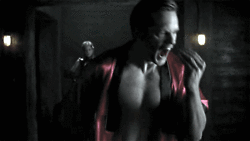
…when my oncologist’s office calls (20 minutes before my appointment) to tell me that my RAI pill wasn’t delivered because somebody “didn’t verify the dosage.”
Tags: humor, oncologist, RAI, thyca
- 1 comment
- Posted under Uncategorized
July 29, 2013 Radioactive Iodine Treatment (RAI) for Dummies
If you’re diagnosed with thyroid cancer, you will most likely be given Radioactive Iodine (RAI) Treatment. It sounds like something from an episode of Star Trek but I promise it’s a legitimate medical procedure! In my attempt to better understand what will happen to my body in a few short days, I read as much information as I could in preparation. Thus, I give you the (crudely illustrated*) RAI guide!**
You just had your thyroid surgically removed, so all remaining tissues and thyroid cells left in your body are assumed to be cancerous. I imagine they look a little something like this:

They’re a little pissed off because their mothership (the thyroid) was RIPPED from them, much like pre-teen girls getting ripped off of Justin Bieber. They’ve been hanging out with your thyroid for quite some time, so you can imagine the shock they must feel. Poor little cancer cells (not).
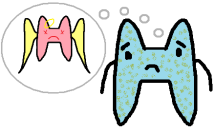
Your endocrinologist, surgeon, oncologist, and/or primary care physician start monitoring your thyroid stimulating hormone (TSH) after being taken off of/never started on a thyroid hormone replacement. While off of this replacement, the thyroid cancer cells and tissue are getting increasingly impatient and hungry for iodine (which your thyroid normally uses to produce the thyroid hormone).
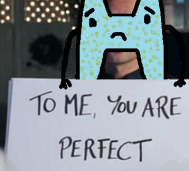
Your TSH will continue to rise over days/weeks (in my case it was a mere seven days before it was high enough). During this process, your body is becoming hypothyroid (lovingly called “hypohell” by some Thyroid Cancer patients) and your remaining thyroid cells are searching everywhere for iodine.
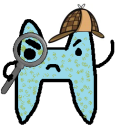
Once your body’s TSH levels are high enough, your oncologist or nuclear medicine specialist will do a bunch equations and science and all sorts of things to figure out the dosage you need. Once the pill is made and ready for consumption, you’ll go to the hospital and pop the pill! The time you have to stay in the hospital varies by state and dosage. Some states require you stay in an isolated room until your radioactive levels are lowered, and others let you go home to begin isolation. This is where the Iodine comes in…

By this point, the thyroid cancer cells are STARVING. It’s like they’re used to Thanksgiving and then all of a sudden you haven’t gotten paid in a month and the only thing in your fridge is moldy cheese.
So the fight begins! The Radioactive Iodine begins “attacking” any and all remaining thyroid cells in your body. Because your thyroid cells are so freakin’ hungry, they take in all the iodine they can.
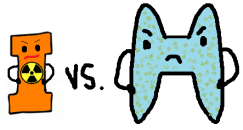
As time goes on, the RAI continues to attack the remaining cells, effectively killing off any cancer (or so we hope). The thyroid cancer cells get zapped and go off to cancer heaven (aka hell).
The end!
Of course, RAI is not without side effects. For a more detailed guide on RAI therapy, please visit the Thyca Survivor’s website.
*I have no idea what Thyroid Cancer cells really look like. Plus, I’m drawing them in Paint so I’m pretty sure I couldn’t get a pretty looking one if I tried…
**NOTE: I am not a medical professional, nor do I play one on TV. If any information in this post is incorrect, please let me know!
Tags: humor, RAI, thyca, Thyroid cancer
- 1 comment
- Posted under Uncategorized
July 22, 2013 Oncology
Last Friday, July 19, I had my appointment with my radiation oncologist. He explained my cancer in more detail and spent an ample amount of time explaining everything to me and answered all my silly questions.
My treatment plan will basically go like this:
Radioactive Iodine Treatment (sometime within the next couple weeks, hopefully!) —> Whole Body Scan (ten days after RAI) —> PET scan —> External Beam Radiation (7 weeks, 5 days a week).
Things are much more complicated than that, but generally that is the plan. If after the whole body scan there is cancer apparent in any of my lymph nodes, I will get sent back to surgery and have to go through the healing process all over again before beginning radiation. The whole body scan also ensures the cancer has not spread to nearby bone or tissue that will have to be treated as well.
I’m ready to get this all started and begin the road to recovery! Definitely not looking forward to the radiation side effects, but it’s all worth it as long as it goes away!
Tags: cancer, oncologist, thyca
- Leave a comment
- Posted under Uncategorized
July 19, 2013 Surgery: Part II & Pathology
My appointment to have my stitches removed was on July 16. It was relatively quick and–for the most part–painless. I was just happy to get the stitches out! I had steri-strips placed over the incision because it hadn’t completely closed yet. I think the worst part of the incision is the fear of it getting infected or tearing–and also, changing your own bandages and having to clean out the incision–yuck!
Here’s some photos from my recovery!
The pathology report had also come back as (duh) positive for Papillary Carcinoma. It had spread to some of the lymph nodes they removed, as well as grown out of it’s “shell” and onto my trachea. The surgeon said he’d never seen anything quite like that, and they’d had to essentially “scrape” the cancer off of my trachea. It’s a wonder my recovery wasn’t more painful!
Thyroid cancer is staged in a unique way if you are under the age of 45. If I was over 45, I would technically be at Stage 4, but because I am under 45, I am considered Stage I T4A N1 and — as of right now — M0. To make sense of this, visit this website to check out some great diagrams!
Tags: thyca, Thyroid cancer, thyroidectomy
- Leave a comment
- Posted under Uncategorized
July 16, 2013 Surgery
July 10 was the date of my surgery for a total thyroidectomy and removal of some surrounding lymph nodes. I arrived at the hospital a couple hours early, got into my beautiful gown and slippers, and waited for a nurse to start my IV (in my opinion, the worst thing ever).
After one of the worst IV-getting experiences of my life (I’ll spare you all that story) and visiting with the anesthesiologist (who was absolutely wonderful) I was ready to go to surgery. My surgical nurse came and got me and wheeled me into the operating room. I felt like I was being wheeled into a freezer! I got up on to the table as my nurse had all the surgical tech’s and other nurses wave at me. They began strapping me to the table (not as scary as it sounds) and placed an oxygen mask over my face. I remember cracking jokes with the nurse and anesthesiologist as she explained I’d soon be going to sleep.
I awoke in recovery, asking the nurse there for ice and water — I remember being SO thirsty! Next thing I knew, I was in a room on the 5th floor of the hospital, my sisters and mom and aunt all there. I had some visitors, but was so tired that I thought I’d go to sleep — so everyone went home. Unfortunately, I was unable to sleep more than about an hour at a time because of pain and the general anxiety of being in the hospital. I made sure to take my IV with me and walk around like the nurses had suggested, and was drinking as much water as possible.
The next morning, a nurse came in to let me know I could go home because my calcium levels were high enough. (A common issue post-thyroidectomy is low calcium, which can cause a host of other problems.) After several hours of waiting and a visit from my surgeon later, I was on my way home!
Mostly I remember having neck and shoulder pain, extreme tiredness, and being slightly emotional (anesthetic usually has this effect on me). Taking pain medication certainly helped with sleeping and pain management. Overall, the recovery hasn’t been awful!
Tags: surgery, thyca, Thyroid cancer, thyroidectomy
- Leave a comment
- Posted under Uncategorized
July 12, 2013 Advice: Part II
To continue with my advice/attempt to make you laugh/letting you know you aren’t alone post… here we go!
4) Don’t be afraid to laugh about it. I almost laughed when the surgeon told me I had cancer. I’m not even kidding. It sounds terrible, I know, but finding out I had cancer was almost comical to me. With a horrendous streak of bad luck lately, this was just the icing on the cake.
5) If you feel uneasy with your doctor/surgeon, get a second opinion. As you may have read in my previous posts, I felt uncomfortable with Surgeon 1 from the beginning. I am so thankful to have been referred to Surgeon 2, who is much more experienced in dealing with thyroid cancer and has done countless similar surgeries to the one I will have.
6) Be brave! It sounds cliche and cheesy, but face this stupid cancer bull shit with all the guts and glory you have. Stay strong, be patient, and smile whenever you can. You are in control of this — say and do what you want to do and do it courageously.
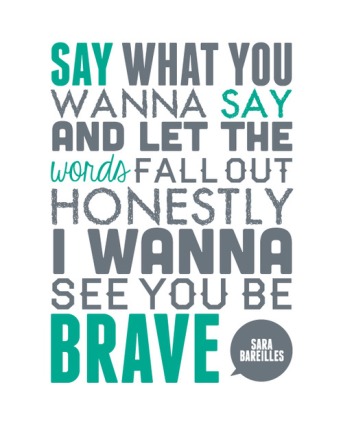 (Order this awesome print here.)
(Order this awesome print here.)
- Leave a comment
- Posted under Uncategorized
July 7, 2013 Advice: Part I
You’ve got Thyroid Cancer. It’s hard to swallow that news (literally and figuratively). I know it’s scary. I’m still terrified about what’s going on, but based on my experience so far, I’d like to offer some advice that hopefully will make you feel relief, laughter, or both.
1) YOU ARE NOT ALONE! In fact, an estimated 60,000 new cases of Thyroid Cancer will be diagnosed in 2013, with over 40,000 of those being women. Many great resources exist for Thyroid Cancer patients. There are local support groups, Pinterest pages, Twitter accounts, Facebook groups, and blogs that all exist to help us share our story and support others who are suffering through the same thing.
2) Allow yourself to feel how you feel when you feel it. (Thank you Hannah Horvath of HBO’s “Girls” for that quote). Don’t let others tell you how to feel. No matter what others say about it being the “good cancer” (see #3) it’s still a big deal and you are allowed to feel however you want. If you want to cry, then cry. If you want to shrug it off, then shrug it off. If you want to sleep for 16 hours straight, take a Tylenol PM and nap it out. If you want to punch somebody in the face, then make sure there are no witnesses and punch away. The fact is, unless your life goes all Freaky Friday and someone has to trade places with you, they have no right to expect you to feel a certain way.
3) Get used to hearing about your “good cancer.” We’ve all heard it from a multitude of sources: friends, family members, strangers who overhear our conversations, and even our own surgeons tell us that we’ve got the Good Cancer! Everyone will tell you they know someone who’s had it (parent, friend, co-worker, that woman from Dancing With the Stars, their sister’s college roommate, the neighbor lady, the guy who works at the checkout counter at Walgreen’s, etc.) and they’ll swear up and down that this person they know (or have seen on TV) is Totally Healthy!
The fact is that the “good cancer” statement has some slight truth behind it but it’s okay to still be really fucking annoyed when people say it — because it can feel like they are invalidating your entire experience. You may even feel guilty because your cancer is the “good” one.
Here’s the deal: it’s not an excuse, but people are saying this because they want to comfort you, make you feel as if everything is going to be okay, and let you know that they’re here for you. They’re also trying to say what they think is right, and in a way trying to comfort themselves by reassuring that you’ll be fine. We are ALL guilty of doing this at one point or another. I know it’s hard to do, but try to let it roll of your shoulders and know there are thousands of other thyroid cancer patients and survivors out there who understand your experience.
Most of all: hang in there, fellow warrior (or friend of warrior).
Tags: advice, cancer, good cancer, resources, thyca
- Leave a comment
- Posted under Uncategorized
